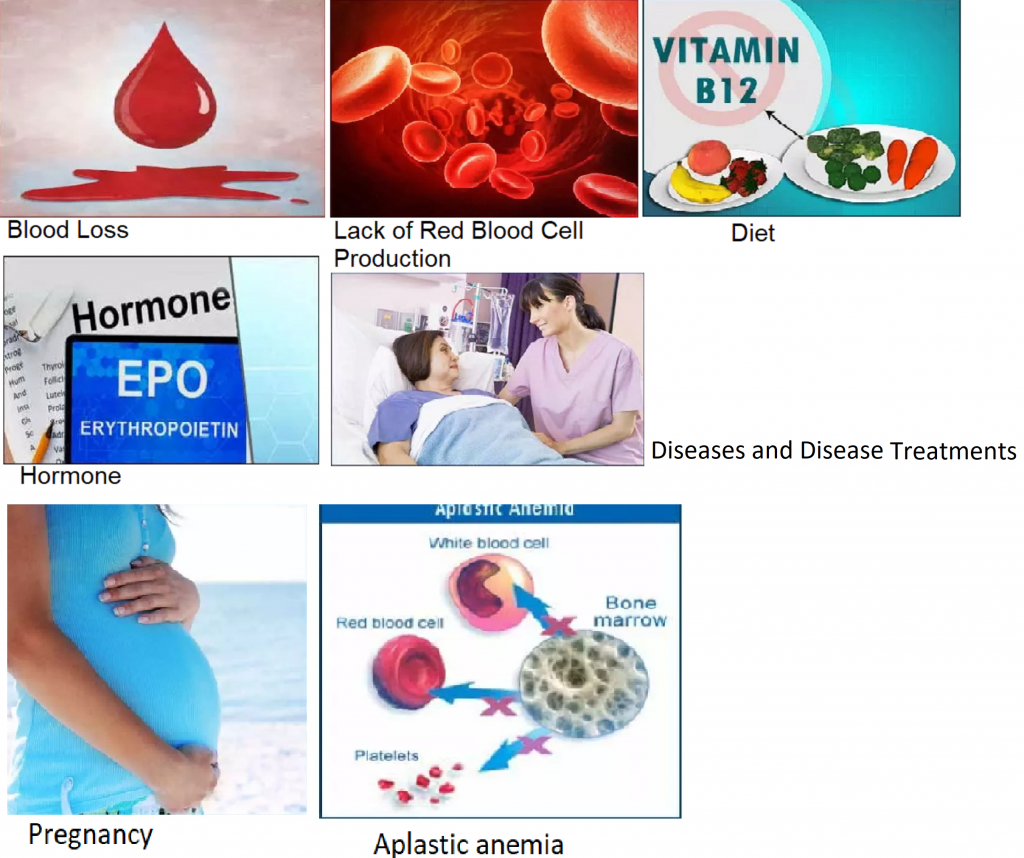
The main causes of anemia are:
Blood loss
It is the most common cause of anemia. Especially iron-deficiency anemia. Blood loss can be short term or persist over time.
Heavy menstrual periods or bleeding in the digestive or urinary tract can cause blood loss.
Surgery, trauma, or cancer also can cause blood loss. If a lot of blood is lost, the body may lose enough red blood cells to cause anemia.
Lack of Red Blood Loss production
Both acquired and inherited conditions and factors can prevent your body from making enough red blood cells.
- Acquired means you are not born with the condition, but you develop it.
- Inherited means your parents passed the gene for the condition on to you.
Acquired conditions and factors that can lead to anemia include a poor diet, abnormal hormone levels, some chronic diseases, and pregnancy.
Diet
A diet that lacks iron, folic acid (folate), or vitamin B12 can prevent your body from making enough red blood cells. Your body also needs small amounts of vitamin C, riboflavin, and copper to make red blood cells. Conditions that make it hard for your body to absorb nutrients also can prevent your body from making enough red blood cells.
Hormones
Your body needs the hormone erythropoietin to make red blood cells. This hormone stimulates the bone marrow to make these cells. A low level of this hormone can lead to anemia.
Disease and Disease Treatments
Chronic diseases, like kidney disease and cancer, can make it hard for your body to make enough red blood cells. Some cancer treatments may damage the bone marrow or damage the red blood cell’s ability to carry oxygen. If the bone marrow is damaged, it can not make red blood cells fast enough to replace the ones that die or are destroyed.
People who have HIV/AIDS may develop anemia due to infections or medicines used to treat their diseases.
Pregnancy
Anemia can occur during pregnancy due to a low level of iron and folic acid and changes in the blood. During the first six months of pregnancy, the fluid portion of a woman’s blood ( the plasma) increases faster than the number of red blood cells. This dilutes the blood and can lead to anemia.
Aplastic anemia
Some infants are born without the ability to make enough red blood cells. This condition is called aplastic anemia.
Infants and children who have aplastic anemia often need blood transfusions to increase the number of red blood cells in their blood.
Acquired conditions or factors, such as certain medicines, toxins, and infectious diseases, also can cause aplastic anemia.
